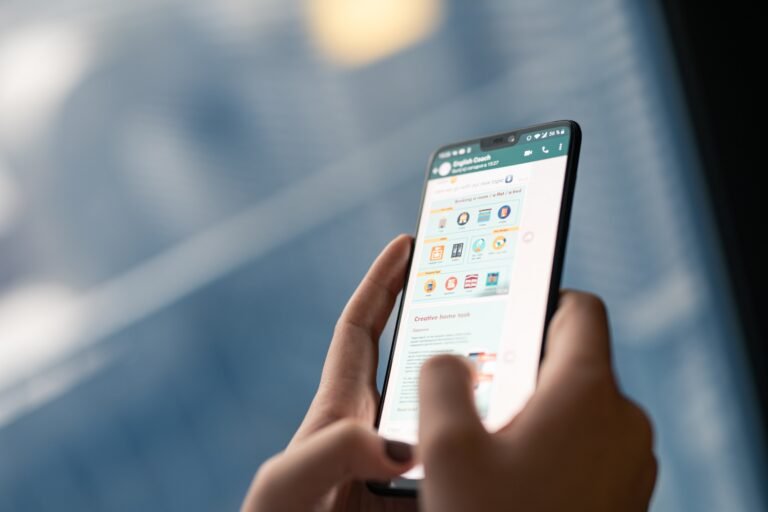In an era dominated by e-commerce giants, brick-and-mortar retailers are discovering an unexpected ally in their quest to remain relevant and competitive: mobile applications.
While the trend began in tech-savvy cities like London, where mobile app developers London-based have been at the forefront of retail innovation, it has rapidly spread across the globe. This digital transformation is reshaping the retail landscape, offering traditional stores new ways to engage customers and streamline operations.
The Evolving Retail Landscape
The retail industry has undergone massive changes in recent years. E-commerce platforms have captured a growing share of consumer spending, putting pressure on traditional brick-and-mortar stores. However, physical retail still holds a unique appeal to most consumers, offering:
- Tangible product experiences
- Immediate gratification
- Personal customer service
- Social shopping experiences
The challenge for brick-and-mortar retailers lies in leveraging these strengths while embracing digital technologies to enhance the overall shopping experience. This is where mobile apps enter the picture, which, when done right, can offer them a way to stay relevant while even building their brand recognition against e-commerce giants.
Retail Mobile Apps: More Than Just a Digital Storefront
Many retailers initially viewed mobile apps as simply another sales channel. However, innovative mobile app developers, including those in London’s thriving tech scene, have demonstrated that these apps can do much more. They can serve as a bridge between the digital and physical realms, enhancing the in-store experience and driving customer engagement.
1. Personalised Shopping Experiences
Modern consumers expect personalised experiences. Mobile apps can deliver this by:
- Analysing past purchase history and browsing behaviour
- Providing tailored product recommendations
- Offering personalised discounts and promotions
For example, Pixelfield, a leading mobile app development company in London, has experience creating an app that can use AI to generate personalised style recommendations based on a customer’s previous purchases and browsing history.
2. Enhancing In-Store Navigation
Large department stores or sprawling shopping centres can be overwhelming for customers. Mobile apps can help by:
- Providing indoor mapping and navigation
- Helping customers locate specific products within the store
- Offering augmented reality (AR) features for a more interactive experience
A notable example is the app developed by a team of mobile app developers in London for Harrods, which offers detailed in-store navigation, making it easier for customers to find what they’re looking for in the vast department store.
3. Seamless Omnichannel Experience
Today’s consumers, especially younger Gen Z and Millennial shoppers, often switch between online and offline shopping. A well-designed mobile app can create a seamless omnichannel experience by:
- Allowing customers to check in-store availability of products
- Offering ‘click and collect’ services
- Providing a unified shopping cart across online and in-store purchases
4. Loyalty Programs and Gamification
Mobile apps provide an excellent platform for implementing loyalty programs and introducing gamification elements to enhance customer engagement. Features might include:
- Digital loyalty cards
- Points systems with rewards
- Challenges or missions to encourage repeat visits and purchases
One London mobile app developer, for instance, developed an app for a boutique UK coffee chain that gamified their loyalty program, resulting in a 25% increase in repeat customer visits.
5. Data Collection and Analytics
One of the most valuable, but sometimes overlooked, aspects of mobile apps for retailers is the wealth of data they can provide. This data can inform business decisions and strategy by:
Tracking customer behaviour and preferences
Analysing foot traffic patterns
Measuring the effectiveness of marketing campaigns
Implementing Mobile App Strategy: Key Considerations
While the benefits of mobile apps for brick-and-mortar retailers are clear, implementing an effective mobile strategy requires careful planning and execution.
1. Defining Clear Objectives
Before embarking on mobile app development, retailers need to define clear objectives. These might include:
- Increasing foot traffic to physical stores
- Enhancing customer engagement and loyalty
- Streamlining operations and reducing costs
- Gathering valuable customer data
2. Understanding Your Audience
Different demographics interact with mobile apps in different ways. Understanding your target audience is crucial for developing an app that resonates with your customers. Consider factors such as:
- Age and tech-savviness of your customer base
- Preferred features and functionalities
- Privacy concerns and data sharing preferences
3. Choosing the Right Development Partner
Selecting the right mobile app development partner is crucial. While there are talented mobile app developers London-based and in other tech hubs, it’s important to choose a team that understands retail dynamics. Look for developers with:
- Experience in retail app development
- A portfolio of successful projects
- Understanding of UX/UI best practices
- Knowledge of data security and privacy regulations
4. Integrating with Existing Systems
For a mobile app to be truly effective, it needs to integrate seamlessly with existing retail systems, including:
- Inventory management systems
- Point of Sale (POS) systems
- Customer Relationship Management (CRM) platforms
- E-commerce platforms
5. Ensuring Data Security and Privacy
With the increasing focus on data privacy and regulations like GDPR, ensuring the security of customer data is paramount. Retailers need to:
- Implement robust data security measures
- Be transparent about data collection and usage
- Provide customers with control over their data
6. Continuous Improvement and Updates
Launching a mobile app is just the beginning. To maintain relevance and user engagement, retailers need to:
- Regularly update the app with new features
- Address user feedback and fix bugs promptly
- Stay abreast of new technologies and trends
Hypothetical Scenarios: Retail Mobile Apps in Action
To illustrate the potential of mobile apps in brick-and-mortar retail, let’s explore some hypothetical scenarios that demonstrate how different types of retailers could leverage mobile technology:
1. High-Street Fashion Retailer
Imagine a popular high-street fashion chain with stores across the UK and Europe. Their mobile app, developed by skilled mobile app developers London-based, could offer:
- Virtual try-on features using augmented reality (AR) technology
- A style quiz that provides personalised outfit recommendations
- Real-time inventory checks across all store locations
- A loyalty program with exclusive in-app discounts and early access to sales
By implementing these features, the retailer could see increased foot traffic to physical stores, higher customer engagement, and improved inventory
management.
2. Local Grocery Chain
Consider a regional grocery chain looking to compete with larger supermarkets and online delivery services. Their app might include:
- Personalised shopping lists based on previous purchases
- In-store navigation to help customers find products quickly
- Scan-and-go technology for quicker checkouts
- Recipe suggestions based on items in the customer’s cart
Such an app could enhance the in-store experience, reduce checkout times, and increase customer loyalty by offering personalised services.
3. Multinational Bookstore
Picture a large bookstore chain with a presence in multiple countries. Their mobile app could feature:
- An AI-powered book recommendation system
- In-app book previews and reviews
- Click-and-collect services for online orders
- An interactive in-store map to locate specific titles or genres
This approach could help the bookstore compete with online retailers by offering a unique blend of digital convenience and physical browsing experience.
4. Artisanal Bakery Network
Envision a network of artisanal bakeries across a country. Their mobile app, crafted by innovative mobile app developers London-based, might offer:
- Daily specials and limited-edition items notifications
- A virtual punch card for loyalty rewards
- Pre-ordering for quick pick-up of freshly baked goods
- Behind-the-scenes content, such as baking tutorials or meet-the-baker videos
Such an app could help small, independent bakeries compete with larger chains by fostering customer loyalty and offering convenient services.
5. Home Improvement Retailer
Consider a home improvement store looking to enhance customer experience and boost sales. Their app could include:
- An AR feature to visualise furniture and paint colours in the customer’s home
- DIY project guides with shopping lists
- In-store product locator
- Video consultations with home improvement experts
This type of app could drive foot traffic to stores while also supporting customers throughout their home improvement journey.
By implementing these kinds of features, retailers can create more engaging shopping experiences, drive foot traffic to physical stores, and compete more effectively in the digital age.
While these scenarios are hypothetical, they’re based on real possibilities that mobile app developers, including those in London and around the world, are bringing to life for forward-thinking retailers.
The Future of Retail Apps
As technology continues to evolve, so too will the capabilities of retail mobile apps. Some trends to watch include:
- Increased use of AR for virtual try-ons and product visualisation
- Integration of voice assistants for hands-free shopping
- Use of blockchain for enhanced security and transparency
- Implementation of AI for hyper-personalised shopping experiences
From London to New York, Tokyo to Sydney, retailers are partnering with skilled mobile app developers to create innovative solutions that bridge the gap between online and offline shopping.
While the initial wave of retail app innovation came from tech hubs like London, where mobile app developers London-based led the charge, the trend has now gone global. Retailers worldwide are recognizing the potential of mobile apps to transform their businesses.
However, success in this arena requires more than just having an app. It demands a well-thought-out strategy, a deep understanding of customer needs, and a commitment to continuous improvement. By embracing mobile technology and working with experienced developers, brick-and-mortar retailers can not only survive but thrive in the digital age.
As we look to the future, one thing is clear: mobile apps will play an increasingly important role in shaping the retail landscape. For brick-and-mortar stores willing to innovate and adapt, this digital transformation represents not a threat, but an exciting opportunity to redefine the shopping experience for a new generation of consumers.
Passionate content writer and savvy blog publisher, Aamir crafts compelling stories and insightful articles that captivate and inform. With a knack for blending creativity and strategy, they bring fresh perspectives to every piece. Dive into their world of words and discover content that resonates.





